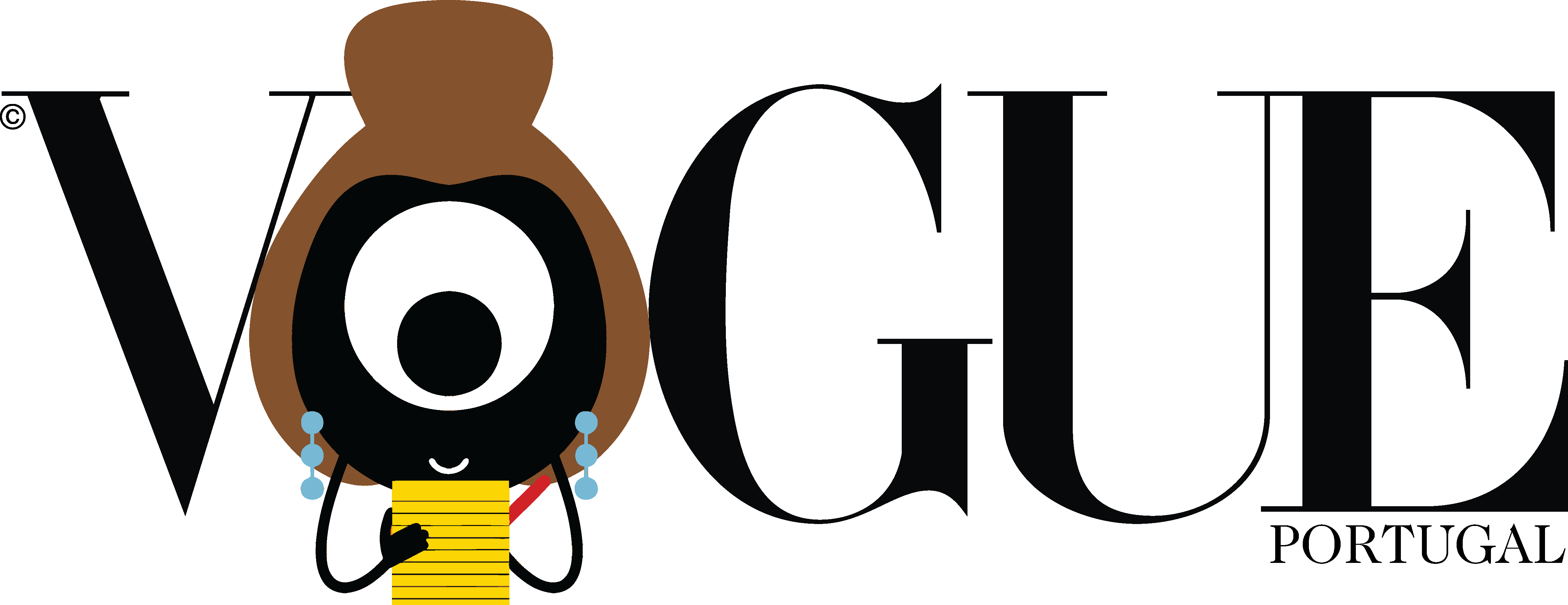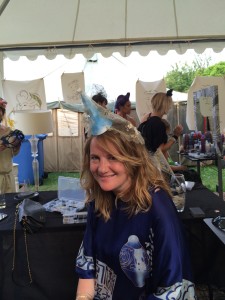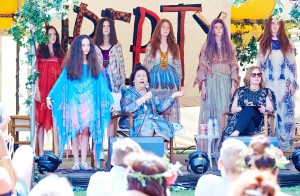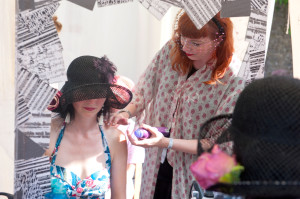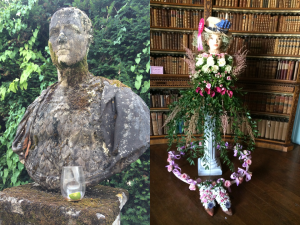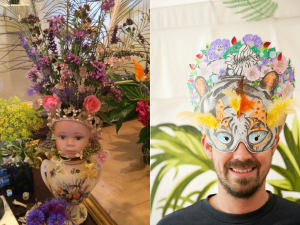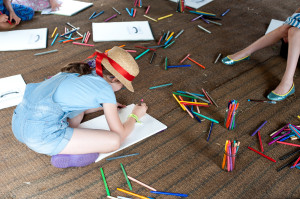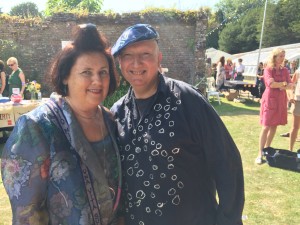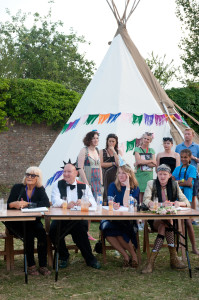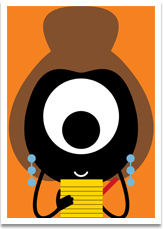Port Eliot: a compelling festival of culture, fashion and families.
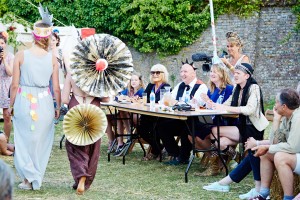
Barbara Hulanicki, Stephen Jones, Catherine St Germans and Ed Marler judging a fashion show in the Wardrobe Department. © Michael Barrett
“I want to leave a memory like a wonderful stain in your head – something happens when you are on a festival site, you lose your inhibitions and there is a sense of community,” said Catherine St Germans as poets declared their words under woodland trees, young girls paraded their hand-made dresses in a walled garden and revellers threw themselves into the muddy estuary water.
In the Port Eliot Festival that took place last weekend in Cornwall on England’s far west shore line, the St Germans – Lord Peregrine and his wife Catherine – have created an ode to English eccentrics. And I was proud and pleased to join them.
I have always been drawn more to haute Bohemia than formal fashion. The subject of the conversation I had with my friend and colleague Sarah Mower was the inimitable Zandra Rhodes, who was a pioneer of irreverent pattern and vivid colour in the Sixties.
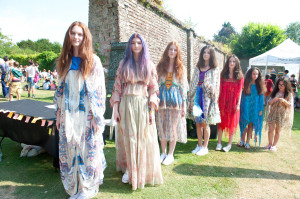
The Warren sisters and Spanier sisters preparing to go on stage in the walled garden. They all wear Zandra Rhodes, while the last in line wears Kate Moss for Topshop for Topshop, inspired by Zandra. © Fiona Campbell
Not to mention Zandra’s shocking-pink dyed hair. Now, of course, mad colour is main stream. At Port Eliot, funky hair sprays from Bumble & Bumble, kooky hats from milliner Stephen Jones, and head wreaths created from the garden’s meadow flowers by Piers Atkinson were just some of the ways that women of all ages lived a midsummer daydream.
At the heart of the event, which Stephen Jones called “a festival founded on words”, was a literary gathering of writers and critics in an extraordinary place: the grounds of the squat grey stone castle and its rambling buildings, some of which date back to the twelfth century, and the church with stained glass windows by Edward Burne-Jones.
The historic architecture was dressed up with a line-up of scarecrows made to resemble figures from Marie Antoinette to Anna Wintour. There was another competition of tea cosies: a “sex pot” laced-up, black leather version from costume designer Sandy Powell, and another knitted cosy representing Eurovision Song Contest winner Conchita Wurst.
In front of the house, a tent was filled with flora and food – the edible part being a new focus for the festival, which had lured the posh London food emporium Fortnum & Mason to create a pop-up version in the orangery. It was described by Peregrine St Germans as “the most celebrated epicurean retailers in the world”. While Ewan Venters, Fortnum & Mason’s CEO, said it was a great opportunity to “get 10,000 people to think of us”.
The flower contest took place in the cavernous underground kitchen area. With its line-up of bells for every upstairs room and doors marked “Servants’ beer & cider store”, it suggested an older <Downton Abbey> world of upstairs/downstairs.
In front of the house stretched a landscaped hillock of sun-baked grass, dotted with tents and yurts. While among the food stations and stores, music blared out, encouraging revellers to dance all night.
How does Port Eliot differ from the famous mud-and-music Glastonbury festival in England, or America’s Coachella Valley and Burning Man?
Far less celebrity conscious and more of a family event, Port Eliot featured creative activities for children. I spent part of my three days in the Wardrobe Department, described on the programme as “a base camp for fashion imagination gone wild” and “Narnia backstage”.
I watched children of seven and younger painting, hand-printing and piecing together outfits under the guidance of Jenny Dyson, creative director of Pencil agency.
“It really is bespoke – this is a festival of ideas,” said Jenny. “When it comes to fashion, it is great to see the kids really inspired by the creative process.”
The result? A fashion show where hay bales replaced gilt chairs, and a prom parade judged by Cathy St Germans, Stephen Jones, Sarah Mower and Barbara Hulanicki, the founder of London Sixties store Biba. She had been teaching children to draw in an American Indian tepee.
With so many fashion events, from Sarah’s interviews with Simone Rocha and fashion icon Penelope Tree, it was hard to keep up with the myriad cultural events, let alone the music scene.
So is it “move over Glastonbury” – Port Eliot is hot?
“Glastonbury is the sun that we all orbit around,” said Catherine St Germans. “The English do festivals better than anyone. And the eclecticism of what we do here is difficult to beat.”
